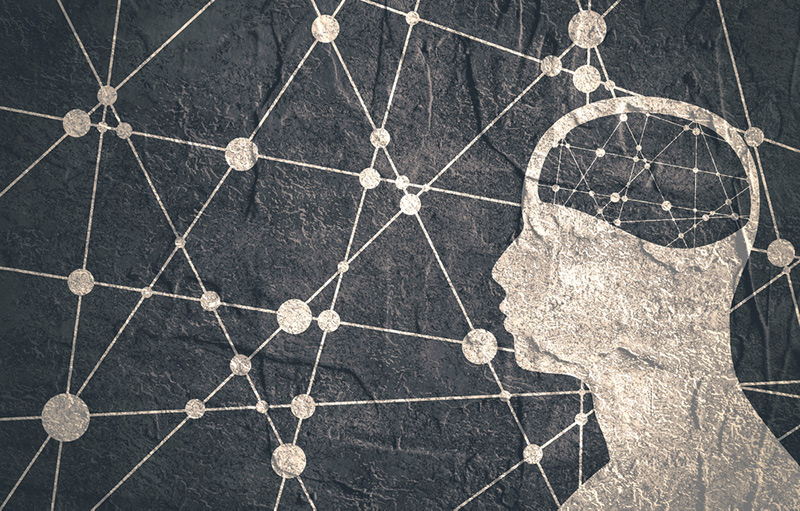The role of mental health professionals in challenging times
Now more than ever, effective mental health leadership needs to be recognised
Now more than ever, effective mental health leadership needs to be recognised

It’s halfway through 2021 and three of Australia’s biggest cities are in lockdown. For Sydney, it’s the worst yet. A national emergency. And it’s going to last for some time.
It’s tough for everyone. The effects of lockdowns – and even just the pandemic as a whole – on mental health are not only well documented, but self-evident.
“The impact of pandemic fatigue is real,” confirmed Lucy Brogden, Chair of the National Mental Health Commission.
“It’s the middle of 2021, when many Australians thought the restrictions of COVID-19 were behind us. But instead, we’re living with a new reality.”
In a period of dire collective mental health in Australia, it’s our mental health professionals that will play a vital role in ensuring we make it through these dark times. That we can see and reach the light at the end of the tunnel. We must identify and encourage those who are driving the mental health industry forward in the most exciting and important ways.
The Australian Mental Health Prize fulfils that role.
“There are many persons in Australia exercising outstanding, often heroic leadership in the field of mental health,” revealed Australian Mental Health Prize Co-Chair Professor Allan Fels AO.
“Whether experiencing mental health challenges themselves or in their families or in those close to them or whether occupying senior roles in the system. They are all worthy of consideration for the award of the Australian Mental Health Prize.”
Thankfully, the government agrees. It recently acknowledged the importance of industry professionals by pouring $12 million into mental health support in New South Wales.
“In Australia, we have been fortunate to see the mental health community rally to support the wellbeing of not just 1 in 5 Australians but 5 in 5,” continued Brogden.
“Our system of care in families, in the community and in clinical settings is underpinned by the hard work and skill of families, carers, advocates, peer workers, clinicians and academics for many, many years. The Australian Mental Health Prize recognises the leaders in the Australian mental health sector.”
Professor Valsamma Eapenfrom UNSW Medicine & Health who is on the advisory board for the 2021 Australian Mental Health Prize agreed. “With the increase in demand for mental health services and limited resources available, many in the field have worked tirelessly to ensure that those in need receive the most comprehensive care but there are some who have gone that extra mile or led an exceptional piece of work in service delivery, advocacy or in research.”
The mental health funding was strongest for young people, who will bear the economic brunt of the pandemic for many years to come. It’s an especially challenging situation for younger Australians. Imagine when you were a child and how hard it would have been to be told you cannot see your friends, or play sport, or go on your holiday, or have a birthday party? Even just hang out. Imagine how it would have felt to have been trapped at home with just your parents and siblings for weeks on end.
What of young adults? Imagine turning 18 and not being allowed to go to a pub for the first time. Or go camping with your mates. Go to a concert. Seek out a love interest. Share a first kiss. Not to mention attend universities, learn the tricks of your trade in the work site, and even get a job in the first place with so many businesses struggling. How would you imagine your prospects of moving out and making a life of your own in the circumstances? Especially when many aren’t eligible for the Covid Disaster Payments?
“The COVID-19 pandemic has had a disproportionate impact on children,” said Professor Eapen. “More than half are finding it difficult to connect with friends and three quarters of children with a developmental disability are experiencing adverse impacts on their health and wellbeing.”
Professor Pat McGorry who is also on the advisory board said, “Young people, especially older adolescents and emerging adults, bear the greatest burden of mental ill health across the lifespan.”
“There is evidence that this threat has been getting worse in recent years and especially since the pandemic struck. Their educational and vocational pathways have been severely disrupted and their sense of hope and security undermined even further.”
But Professor McGorry sees plenty of positives in the newfound mental health funding and the recognition of the industry’s leaders via the Australian Mental Health Prize. “Young people have the greatest potential to benefit from effective prevention, early intervention and quality treatment. Australia has recognised this threat earlier than other nations. I encourage the nomination of Australians for the mental health prize who have made a contribution to improving the mental health of young people.”
“With the increase in demand for mental health services and limited resources available, many in the field have worked tirelessly to ensure that those in need receive the most comprehensive care but there are some who have gone that extra mile or led an exceptional piece of work in service delivery, advocacy or in research.”
How to nominate
To enter this year’s Australian Mental Health Prize, nominees must provide a CV and 200 words outlining the work being undertaken and how it is making an impact.
Find out more here.
Entries close on 27 August 2021.